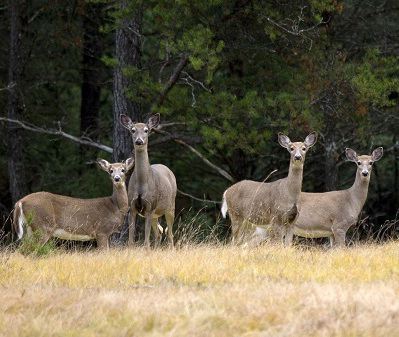Another Montcalm County, MI deer suspected to have CWD
The Michigan Department of Natural Resources announced today that a second hunter-harvested deer in Montcalm County is suspected positive for chronic wasting disease. A sample has been sent to the U.S. Department of Agriculture’s National Veterinary Services Laboratory in Ames, Iowa, for confirmation. If confirmed positive, the 1.5-year-old buck, harvested in Sidney Township, would be the 11th free-ranging deer in Michigan found to have CWD.
“The fact that we already have another positive deer within Montcalm County is of major concern,” said Dr. Kelly Straka, DNR state wildlife veterinarian. “We strongly recommend hunters who harvest deer in Montcalm County have their deer tested. Deer with CWD can look perfectly healthy even though they are infected.”
To date, there have been no reported cases of CWD infection in humans. However, as a precaution, the U.S. Centers for Disease Control and the World Health Organization recommend that infected animals not be consumed as food by either humans or domestic animals.
Since May 2015 when the first CWD deer was found, the DNR has tested more than 15,000 deer. Thus far, 10 cases of CWD have been confirmed in free-ranging white-tailed deer from Clinton, Ingham and Montcalm counties.
As additional deer have tested positive for CWD within Michigan, the DNR has put specific regulations in place. This deer was harvested in the Montcalm-Kent Core CWD Area, which includes Maple Valley, Pine, Douglass, Montcalm, Sidney, Eureka, and Fairplain townships in Montcalm County; and Spencer and Oakfield townships in Kent County. Starting Nov. 15, this nine-township area will have mandatory deer check.
As announced previously, the DNR will hold a town hall meeting Wednesday, Oct. 25, 6 to 8 p.m. in the Ash Foundation Building, located within the Montcalm County Fairgrounds at 8784 Peck Road in Greenville, Michigan.
At the meeting, Dr. Straka and DNR deer specialist Chad Stewart will provide information on chronic wasting disease, its effects on deer and deer populations, and DNR actions to date in responding to the discovery of the disease. Dr. Cheryl Collins, veterinarian from the Michigan Department of Agriculture and Rural Development, will be present to provide information and answer questions related to farmed deer.
Chronic wasting disease is a fatal neurological disease that affects white-tailed deer, mule deer, elk and moose. It is caused by the transmission of infectious, self-multiplying proteins (prions) contained in saliva and other body fluids of infected animals. Susceptible animals can acquire CWD by direct exposure to these fluids, from environments contaminated with these fluids, or from the carcass of a diseased animal.
Some CWD-infected animals will display abnormal behaviors, progressive weight loss and physical debilitation; however, deer can be infected for many years without showing internal or external symptoms. There is no cure; once a deer is infected with CWD, it will die.
To learn more about CWD, visit mi.gov/cwd.
Contact: Dr. Kelly Straka, 517-336-5040, or Chad Stewart, 517-282-4810



